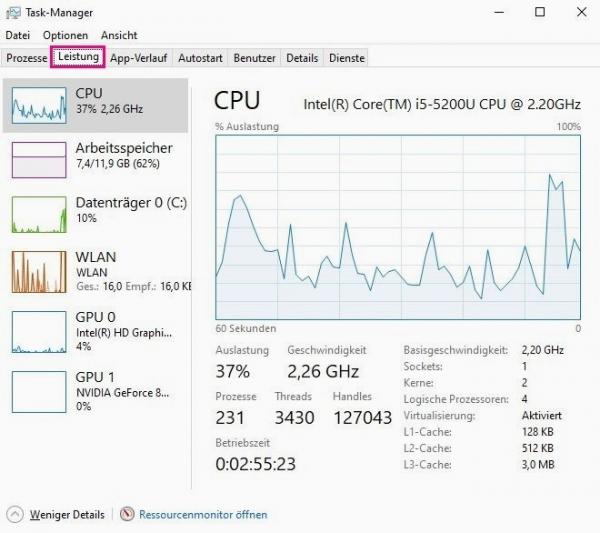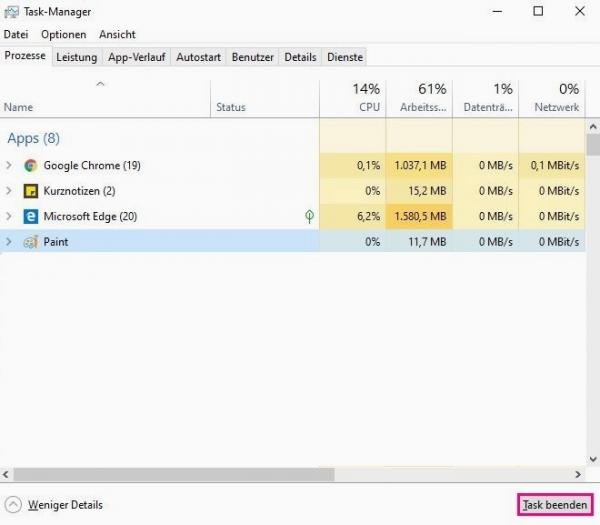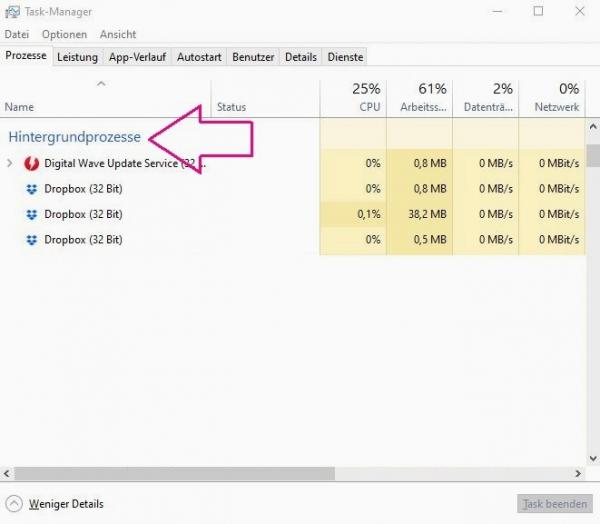Your computer suddenly freezes all open programs and nothing works anymore? This could be because the CPU is being used too much. In addition to consulting the Task Manager, the first responder in this case, there are other factors you should consider to avoid or resolve high processor usage. In this article we will show you how high loads can occur and what you can do about it.
Reasons for high CPU usage
If you start one or more programs, Windows automatically distributes the processing load on the CPU. Under certain circumstances, programs can take up more and more space on the processor. If the CPU load becomes too high, the system freezes and the open programs can no longer be operated. Another cause can be graphic programs such as animation software or games with high-resolution graphics. Other programs that are often the reason for high CPU utilization are 3D renderers, video programs and converters, or CD and DVD burning programs. Even the browser can exceed the processing power of your processor. The reason for this may be too many open tabs or additional addons and plugins.In addition to the manually started programs, there are often background processes that put a load on the CPU. Finally, missing drivers, e.g. for the motherboard chipset or your graphics card, can also be a cause of high CPU utilization.
What is my current CPU usage?
To check how high the current utilization of your CPU is, you can simply open the Task Manager . To do this, press the [Ctrl] + [Shift] + [Esc] keys and then switch to the " Performance " tab . The CPU utilization is then shown graphically under Windows 10..

This is how you reduce the load on your CPU
The easiest way to reduce CPU usage is to close unnecessary programs and applications. If your PC is frozen, you can still open the Task Manager to close the programs .
 To open the Task Manager, simply press the key combination [Ctrl] + [Shift] + [Esc]. Incidentally, this also works if your Windows PC has hung up.
To open the Task Manager, simply press the key combination [Ctrl] + [Shift] + [Esc]. Incidentally, this also works if your Windows PC has hung up. The Task Manager shows you in the " Processes " tab which programs are generating a particularly high CPU load. By selecting a single program and then clicking " End Task ", you can test whether that helps. If not, all programs should be closed..
You can also clean up your system's startup programs. This ensures that the CPU load does not become too high when you start your Windows PC. In addition, the autostart often starts background processes that are waiting to be used, but are often not used. They are still using the CPU. When terminating background processes, make sure to only terminate third-party processes (e.g. Dropbox). Killing native processes could lead to errors in your operating system.

Another tool is the CPU-Z tool. This enables you to determine the hardware installed in your PC and then install drivers or, if necessary, update your drivers.